| Given
the focus of Icons of Europe, we comment from time to time in the
media and elsewhere on issues relating to the new Europe and to transatlantic relations. "Europe will not be built by trade alone ... people inspired by the cultural
diversity of Europe will do that" - Icons of Europe.
Note: Our contributions below to the International Herald Tribune (IHT)
are
signed 'Jens A. Jorgensen, Brussels'.
|
Information
for the media
Articles on Chopin |
More on the need for an EU foreign policy
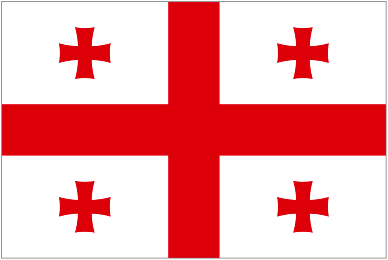 "Georgia
and NATO" "Georgia
and NATO"
|
|


The need for a global EU foreign policy
Our letter to
Nicholas Sarkozy, President of France, 25 February 2008:
"... The EU presidency chaired by France will provide a unique
opportunity to promote the development of a global EU foreign
policy. However, steps could be taken already today."
Reply by the Présidence
de la République to Icons of Europe, 7 March 2008
Subsequently, M. Sarkozy said at the Conseil des
ministres on 19 March 2008:
"Je veux parler enfin de la Présidence française de
l'Union européenne
le 1er juillet. ... Nous devons remettre de la politique en
Europe".
(At the end of the whole
statement)
|
Présidence de la République
|
|
Our
letter to IHT, published on 18 September 2007:
"Cooperating
with Russia"Harry C. Blayney III
emphasizes the importance of taking a comprehensive and long-term
approach to strengthening cooperation between Russia and the
West in many areas including energy, trade, technology and
health (Letters: "Facing the Russia problem," Sept. 14).
However, he could have mentioned an area that continues to
provide a foundation for mutual understanding and cross-border
dialogue and initiatives: Russia's great culture!
|
 |
"The EU:
remarkable accomplishments"
 IHT
article "A Europe 'gone far too far' to unravel" (by Richard Bernstein,
7 June 2005): ... The plain fact is that there are numerous reasons to declare the EU a
historic success. IHT
article "A Europe 'gone far too far' to unravel" (by Richard Bernstein,
7 June 2005): ... The plain fact is that there are numerous reasons to declare the EU a
historic success. - Our letter to the IHT editor (sent 7 June): Amid
the current flack about the EU constitution, much credit is due to Richard Bernstein, who
takes a constructive approach to the European project by declaring “the EU a historic
success”. He cites among “remarkable accomplishments”: peaceful
management of diversity, war as unthinkable, agreement on human rights and common security
policies, the introduction of the euro, the EU’s appeal to the Swiss, and the
emergence of a European soul.
An appreciation of this solid progress will hopefully give EU leaders the confidence to
handle the current institutional crisis. However, will approaches other than
black-and-white referenda be used to consult voters on the future direction of the
EU? How will the views of leaders of industry and civil society be solicited?
What inputs could the European Parliament and the Council of Europe provide?
|
"The
European constitution represents the symbolic refounding of the European Union .... It is
thus a sad paradox that it was rejected by democratic verdicts in France and the
Netherlands. But despite that reality, the EU has
long been viewed as a project of the political elite, and we political leaders have been
unable to convey to our constituents the advantages they derive from EU citizenship."
Margot Wallstrom
(the European Union's communications commissioner and a vice president of the European
Commission)
IHT, 21 June 2005 |
"Fallout from the
French vote"
|


EXAMPLE OF BEING
OUT OF TOUCH:
The web site of the European Convention (drafting the
constitution) is still online and says: "The
European Convention completed its work on 10 July 2003."
It refers to the Futurum site that does not appear to have been updated
since 2 October 2004.
Well, the work is not yet completed ... ! |
"Trans-Atlantic
bridges"
- IHT
article "It's time to renew the trans-Atlantic partnership" (14
April 2005), referring to the European Union and the United States and concluding:
"... A renewed trans-Atlantic agenda should include specific actions to encourage
civil society - including business executives, scientists, journalists, academic
institutions and students - to cooperate. Let's get to work."
- Our letter to the IHT editor (sent 15 April):
TRANS-ATLANTIC BRIDGES:
Enshrined at the Madrid Summit in 1995, the opportunity to strengthen the European
Union’s relationship with the United States at many levels is well articulated by
Spain’s minister of foreign affairs (“It’s time to renew the trans-Atlantic
partnership”, April 14). However, to “build bridges across the
Atlantic” and “encourage civil society to cooperate” (or rather
participate), should the EU-Canada relationship not also be promoted at the same time?  According
to the EU, the EC’s oldest formal relationship with any industrialized country was
signed with Canada in 1976 and updated as the EU-Canada Partnership Agenda in 2004.
The strategic importance of this agenda is emphasized not only by historical and economic
ties, but also by common political values concerning the role of the United
Nations, global security and terrorism, human rights, and other mega issues. According
to the EU, the EC’s oldest formal relationship with any industrialized country was
signed with Canada in 1976 and updated as the EU-Canada Partnership Agenda in 2004.
The strategic importance of this agenda is emphasized not only by historical and economic
ties, but also by common political values concerning the role of the United
Nations, global security and terrorism, human rights, and other mega issues.
|
 
EU - United States:
- Transatlantic Agenda
EU - Canada:
- Overview by the EU
- Overview by Canada
- Partnership Agenda
- Great culture
- Toronto initiative on TB
The EU-Canada Partnership Agenda refers to public health
issues in section A. |
"Ukraine's
allies"
- IHT article "Yushchenko presses Congress for aid"
(7 April 2005): "... Bush, when he met with Yushchenko on Monday, promised to support
Ukrainian efforts to join the World Trade Organization, NATO and the European Union"
(ref. also "Ukrainian an 'inspiration' for Bush", 5 April).
- Our
letter to the IHT editor (first section published on 14 April):
UKRAINE'S ALLIES
It is understandable that president Victor Yushchenko looks to the United States for
political support of his goal of Ukraine joining the World Trade Organization and NATO.
Rather than also seeking U.S. support for its overture to the European Union, Ukraine may
build a better case by continuing to engage Europe and Russia.
The rich history and cultural heritage of Ukraine, shared with Russia, Europe and North
America, provide an additional important argument.
Icons of music have strong roots in Ukraine. For example, Tchaikovsky’s father was a
Ukrainian mining engineer; and Prokofiev was born in Sontsovka (now Krasnoye, Ukraine),
Horowitz in Kiev, and Oistrakh in Odessa. Similar backgrounds apply to Icons of science
and economics including Nobel Prize winners Selman Abraham Waksman (Physiology or Medicine
1952); Simon Kuznets (Economics 1971); Milton Friedman (Economics 1976); and Herbert C.
Brown (Chemistry 1979).
Ukraine has today the opportunity to celebrate this heritage with many other countries,
and to draw inspiration from the common historical bonds through cultural, educational and
scientific programmes. Yushchenko’s stated objective of “peacefully and
constructively occupying a middle ground” and maintaining good relations with Russia,
could be further supported by trying to make the next generation of Ukraine tri-lingual in
Ukrainian, Russian and English. It would also reinforce national identity and cohesion.
|
 "Ukraine's progress"

Born in Russia, Tchaikovsky's father was a Ukrainian
mining engineer, his mother was French.
Prokofiev, Oistrakh and Horowitz were born in places of
today's Ukraine. |
"African
self-help"
- IHT
article "A Marshall Plan is not what Africa needs" (29 December
2004): By comparison [with postwar Europe], Africa is already flooded with
aid. ... The most important benefit [of the Marshall Plan] was probably the
restoration of financial stability and confidence ... .
- Our
letter to the IHT editior (published 5 January 2005): AFRICAN SELF-HELP
Many experts will agree with Todd Moss that "aid for Africa is mostly for building,
not rebuilding" ("A Marshall
Plan is not what Africa needs," Views, Dec. 29). However, his suggestion
for international support through "more open trade and greater private
investment" does not seem to reflect fully his own conclusion that prime issues are
absorption capacity and investor confidence. 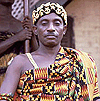 Is a major
challenge for Africa not first to build from within, country by country, a government
management capability to handle policy-reform priorities? That is, peace and
security, principles of law, economic development, education and health, foreign
relations, and regional and Pan-African institutions. Is a major
challenge for Africa not first to build from within, country by country, a government
management capability to handle policy-reform priorities? That is, peace and
security, principles of law, economic development, education and health, foreign
relations, and regional and Pan-African institutions.
A question is therefore how best to motivate existing
African governments to seek assistance to enhance their management capability for the
benefit of their people.
|
Observations by
Icons of Europe:Drawing on Europe's experience,
an additional priority could be for an African government to reinforce national identity
by building on the cultural.heritage and diversity of the country.
Interestingly but independently of the 29 December
article, IHT reported on 3 January 2005 that a group of veteran foreign policy experts
gave Kofi.Annan, the UN secretary-general, "bluntly worded
counsel" on his leadership and top management team. |
"Ukraine's
progress"
- Our
letter to the IHT editor (published 4 December 2004): UKRAINE'S
PROGRESS
The Dec. 2 headlines use language like "Kiev foes," "Russians turn up
anti-West rhetoric," "Fight to lead Ukraine reflects internal turf wars"
and "Entrenched interests are battling."
From far away, it may look as if the whole of Europe is in flames. However, despite
the diverse forces at work and uncertainty about the outcome, there is also an opportunity
to look upon this situation in a more positive way. Just imagine how any aspiration
for democracy in Ukraine would have been handled during the cold war.
Today, the Ukrainian people have been able to make themselves heard; the Supreme Court and
the Parliament have shown institutional maturity; their government has set an objective of
"working together"; the European Commission and EU heads of state continue to
play a useful role as brokers; and the Russian government has, in my opinion, shown much
restraint.
Having already seen former satellite states join the European Union and the North Atlantic
Treaty Organization, Russia is clearly in a delicate situation. Ukraine is highly
important for the Russian economy, and it would create further instability in the whole
area, if the issue of autonomy spilled over to any other regions.
|

Confirming a point raised in our letter,
IHT's main editorial "Ukraine rules"
says on 4 Dec. 2004:
"One of the most heartening aspects of the Ukrainian Supreme Court’s decision was that a Ukrainian institution was deciding the future of
the country."
An IHT article the same day by Judy Demsey notes that EU
diplomats found Moscow's attitude "understandable from a country that has such close
ties with Ukraine".
THE OUTCOME
23 January 2005
|
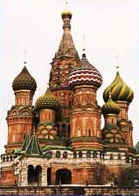 "Russia-EU partnership" "Russia-EU partnership"
- IHT article "Russia pressing the EU for special
relationship" (10 November 2004): Sergei Yastrzhembsky, President
Vladimir Putin's representative for relations with the EU, also said the only reason for
the postponement of a Russia-EU summit meeting this week was that Russia wants to deal
with a new European Commission after it is formed. ...
- Our
response to the editor (published 13-14 November): RUSSIA-EU
PARTNERSHIP
Russia's decision to postpone its EU summit meeting in the last week is said to be
connected with Moscow's concern with being bound by an EU partnership formula that would
place it on the same level as other EU members, particularly the smaller, new members
("Russia pressing the EU for special relationship," Nov. 10).
As defined by its history, political weight, size, economy and potential, Russia is simply
too big a country not to be considered different from the smaller countries of the
European Union. Accordingly, the government of the United States continues to pursue a
more realistic approach in dealing with Russia.
|
An
observation by
Icons of Europe:
Russia's concern appears to be connected with the European Union's sometimes bureaucratic
approach to developing a grand Russia-EU strategy. The approach includes mechanisms such as a partnership and co-operation
agreement, a common strategy, biannual summits, a country strategy paper, and a permanent
partnership council.
Almost worthy of the United Nations, some of these
mechanisms are also applied to much small countries. |
 "Preserving whose heritage?”IHT
article by Souren Melikan ("Can Britain preserve its heritage?",
16-17 October 2004): The illusion that a nation's artistic heritage can be
preserved without permanent adequate funding allocated for the purpose might cost Britain
some of its most precious belongings. ...
Our
response to the editor (published 20 October): "Preserving whose heritage?”IHT
article by Souren Melikan ("Can Britain preserve its heritage?",
16-17 October 2004): The illusion that a nation's artistic heritage can be
preserved without permanent adequate funding allocated for the purpose might cost Britain
some of its most precious belongings. ...
Our
response to the editor (published 20 October):
PRESERVING WHOSE HERITAGE?
Regarding Souren Melikian's article "Can Britain preserve its heritage?" (0ct.
16-17): Can Britain really claim a bejeweled Bengal wine decanter and an agate
flywhisk, among other treasures, as part of its heritage when they were brought to England
under conditions that had "paved the way for the occupation of the
subcontinent"?
And if the dispersal of the contents of Dumfries House would be "an irreparable loss
for Scottish culture," then the British Museum should consider returning Egyptian and
Greek heirlooms to their original places. The same principle would apply to the
Louvre's Roman and Oriental collections. Where would it stop?
Finally, about that 400-year-old British suit of armor made by William Pickering between
1610 and 1613 that, to Melikian's chagrin, today adorns a New York collection: In my
opinion, it is serving a useful purpose of promoting cross-cultural understanding and
international relations.
Anyway, Britain's true heritage is represented by the contributions that icons like
Shakespeare, Newton and Keynes made for the benefit of the whole world - not by imported
hardware.
|
Icons of the
U.K.
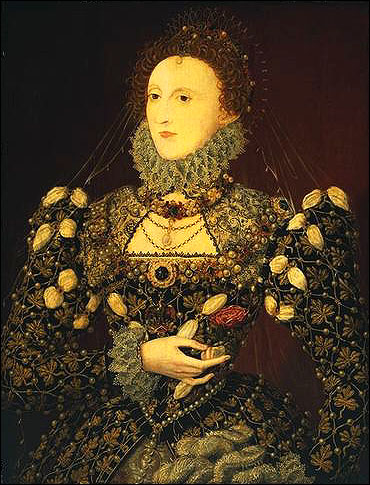
"Britain's true heritage is
represented by the contributions that icons like Shakespeare, Newton and Keynes made for
the benefit of the whole world - not by imported hardware."
The heritage is also represented by the
feelings stirred by Händel's Water Music and Royal Fireworks; and
by the influence that Constable, Turner and other great painters had upon foreign schools.
|
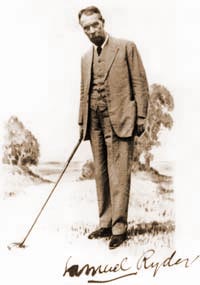 Getting Europe's history right Getting Europe's history rightOur e-mail to the PGA / Ryder Cup administration (18 Sept.
2004): "There is a historical inaccuracy on the Past Results web page.
The European
Union flag did not exist prior to 1985. Moreover, the U.S. team played against a
British-Irish team in 1927-1977 - not a European team".
Response by PGA.com* the same day: "We have replaced
the European Union flags in 1933, 1957 and 1969 with the flags of Great Britain and
Ireland. We also corrected the
applicable historical pages they linked to with the proper flags and team
title. We appreciate the email."
 >> >>  
* Promoting golf, the PGA of America is the largest working sports
organization in the world. The Ryder Cup is said to be watched by a TV audience of
some 500 million people.
|
|
"Germany
and Poland: A reason to celebrate"
- IHT article by Roger Cohen (7-8 August 2004). The article points to a "method" of reconciling two nations traumatized by
history: i.e. define your borders; create a regional political and economic
framework; downplay issues such as property rights; and accept the reality of agonizing
history.
- Our
response to the editor (published on 11 August):
A PEACE PLAN
... While the elements of this method largely reflect government policies, another
equally important element on which institutions and individuals can more easily act is by
respecting and enjoying the cultural heritage of the other nation. Cultural events
and practices bind nations together.
|
 
"Beethoven snaps his fingers at the
whole world".
Chopin, 1830 |
The
reality of the new Europe
- IHT
editorial, "An EU reality check" (22 June 2004):
The editorial refers to Euro 2004 as “a little sport”, to
ultranationalism”, to “peoples now forced to carry a common currency”, to
“jeering”, "screaming” and “spitting”, and to “So it is
with the European Union. A common market, currency and constitution, perhaps."
- Our response to the editor (published
on 30 June):
SOCCER IN EUROPE
It is regrettable that the editorial "An EU reality check" (June 22) uses the
general excitement around the 2004 European soccer championships, with hooligans as an
unfortunate element, to make a facetious snipe at the principles of the European Union ...
. >> More
While our response was published by IHT, it is interesting that the IHT
/ The New York Times online search engine could on 2 July 2004 no longer identify the
editorial. Has it been withdrawn? Earlier IHT editorials are still available.
|

Did IHT or The New York Times withdraw this
editorial:
"... jeering”, "screaming” and “spitting”, and
“So it is with the European Union"? |
"Europe's elections"
- IHT article by Thomas Fuller ("Europe's
disconnect", 16 June 2004): ... A Union that has so many
cultural, political and linguistic differences is united in one perverse way: No one
understands how it works. ...
- Our response to the editor (published on 19 June):
EUROPE'S ELECTIONS
"The new Europe is united - or at least defined - by the history and cultural
heritage of its member states. National icons and household names such as Da
Vinci, Chopin and Shakespeare provide strong bonds between many countries
... that "all adds up to an essential part of Europe's identity and values".
>> More
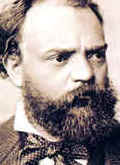     As it happened, Icons of Europe organized on 5 June 2004 near Brussels a Brahms-Dvorák-Martinu recital to illustrate how such
Icons create strong bonds between countries - in this case the Czech Republic, Germany,
Britain and the United States.
As it happened, Icons of Europe organized on 5 June 2004 near Brussels a Brahms-Dvorák-Martinu recital to illustrate how such
Icons create strong bonds between countries - in this case the Czech Republic, Germany,
Britain and the United States.
BBC
about the EU constitution
|

Icons of Europe:
"The new Europe is united - or at
least defined - by the history and cultural heritage of its member states". |
Misuse of the name
"CHOPIN"
- Le Soir article by Niccolas Guggenbühl,
"Chopin se met l'écoute des enfants"
(15-16 November 2003): The article in the Science & Santé section of
the Belgian newspaper Le Soir saw mistakenly a link to the composer Chopin, when
it reported on the EUR 2-million EU-funded Danone Institut research project that used the acronym CHOPIN for "Childhood Obesity: Early Programming
by Infant Nutrition".
- Icons of Europe's letter to the President of the European
Commission (16 November 2003): "In view of the importance of ...
protecting the cultural heritage and diversity of Europe, it is unfortunate that the
European Commission has, perhaps by oversight, associated itself with an inappropriate use
of the name of the famous composer Frédéric Chopin". ... "Corrective
action ... will be needed to avoid that other great names would be misrepresented by a
creative attempt to popularise a project".
- Letter from the European Commission to Icons of Europe
(16 February 2004): "I am pleased to inform you that ... the project
consortium has agreed to withdraw the acronym" (CHOPIN). - The newspaper Le
Soir has so far made no comments on the subject.
|

""Corrective action ... will be needed
to avoid that other great names would be misrepresented by a creative attempt to
popularise a project". |
|
|